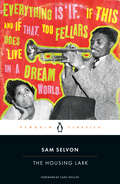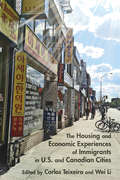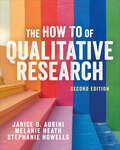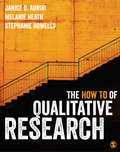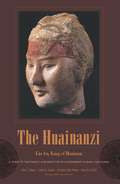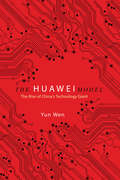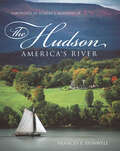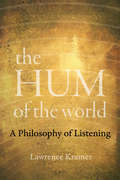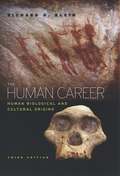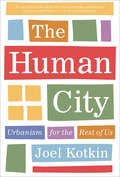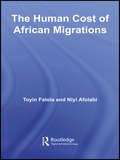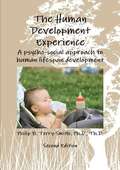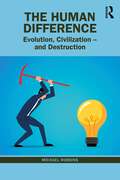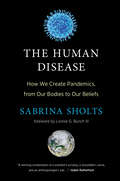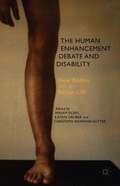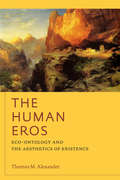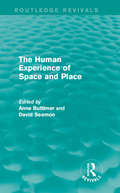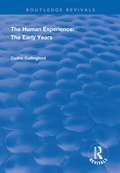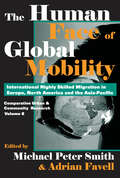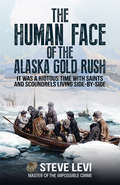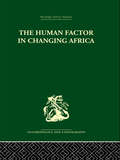- Table View
- List View
The Housing Lark (Penguin Modern Classics Ser.)
by Sam SelvonThe humorous yet poignant novel of West Indian migrant life in London that adds an iconic voice to the growing Caribbean canonA Penguin ClassicSet in London in the 1960's, when the UK encouraged its Commonwealth citizens to emigrate as a result of the post-war labor shortage, The Housing Lark explores the Caribbean migrant experience in the "Mother Country" by following a group of friends as they attempt to buy a home together. Despite encountering a racist and predatory rental market, the friends scheme, often comically, to find a literal and figurative place of their own. Will these motley folks, male and female, Black and Indian, from Trinidad and Jamaica, dreamers, hustlers, and artists, be able to achieve this milestone of upward mobility? Unique and wonderful, comic and serious, cynical and tenderhearted, The Housing Lark poses the question of whether their "lark," or quixotic idea of finding a home, can ever become a reality. Kittitian-British novelist and playwright Caryl Phillips contributes a foreword, while postcolonial literature scholar Dohra Ahmad provides a contextual introduction.
The Housing and Economic Experiences of Immigrants in U.S. and Canadian Cities
by Wei Li Carlos TeixeiraSince the 1960s, new and more diverse waves of immigrants have changed the demographic composition and the landscapes of North American cities and their suburbs. The Housing and Economic Experiences of Immigrants in U.S. and Canadian Cities is a collection of essays examining how recent immigrants have fared in getting access to jobs and housing in urban centres across the continent.Using a variety of methodologies, contributors from both countries present original research on a range of issues connected to housing and economic experiences. They offer both a broad overview and a series of detailed case studies that highlight the experiences of particular communities. This volume demonstrates that, while the United States and Canada have much in common when it comes to urban development, there are important structural and historical differences between the immigrant experiences in these two countries.
The How To of Qualitative Research
by Melanie Heath Janice Aurini Stephanie HowellsThis book will support you through each milestone of your research project with step-by-step instructions to doing qualitative research. Whatever type of data or data collection method you use, it will help you to navigate the nuts and bolts of qualitative research, from forming your research question to effectively writing up. Your roadmap and toolbox all in one, it helps you choose the best research tools for your project while managing any challenges you might encounter along the way. It includes: · Guidance on putting different research designs into practice, including using technology for interviews, data management, and unobtrusive research · Practical mapping tools, including checklists and quick tips · Online case studies and further reading to deepen your knowledge and expand your bibliography · Advice from experts on how to design and implement excellent qualitative research, including considerations of ethical issues. This book is the perfect companion for social sciences students carrying out their first qualitative research project.
The How To of Qualitative Research
by Melanie Heath Janice Aurini Stephanie HowellsThis book will support you through each milestone of your research project with step-by-step instructions to doing qualitative research. Whatever type of data or data collection method you use, it will help you to navigate the nuts and bolts of qualitative research, from forming your research question to effectively writing up. Your roadmap and toolbox all in one, it helps you choose the best research tools for your project while managing any challenges you might encounter along the way. It includes: · Guidance on putting different research designs into practice, including using technology for interviews, data management, and unobtrusive research · Practical mapping tools, including checklists and quick tips · Online case studies and further reading to deepen your knowledge and expand your bibliography · Advice from experts on how to design and implement excellent qualitative research, including considerations of ethical issues. This book is the perfect companion for social sciences students carrying out their first qualitative research project.
The How To of Qualitative Research: Strategies for Executing High Quality Projects
by Melanie Heath Janice Aurini Stephanie HowellsWith clear instructions for developing a research design and complementary research tools, this book is not about describing or theorizing qualitative methods, but how researchers actually create and execute these methods. Helping students conquer the practical issues many novice researchers face, the book provides them with the tools they need to answer critical questions such as: what are some ways to sample potential participants? how do I construct an interview schedule? should I be thinking of a single case study or a comparative study? what and how should I record in the field? what other sources of data should I consider?
The How To of Qualitative Research: Strategies for Executing High Quality Projects
by Melanie Heath Janice Aurini Stephanie HowellsWith clear instructions for developing a research design and complementary research tools, this book is not about describing or theorizing qualitative methods, but how researchers actually create and execute these methods. Helping students conquer the practical issues many novice researchers face, the book provides them with the tools they need to answer critical questions such as: what are some ways to sample potential participants? how do I construct an interview schedule? should I be thinking of a single case study or a comparative study? what and how should I record in the field? what other sources of data should I consider?
The Huainanzi: A Guide to the Theory and Practice of Government in Early Han China
by John S. Major Sarah A. Queen Andrew Seth Meyer Harold D. Roth An LiuCompiled by scholars at the court of Liu An, king of Huainan, in the second century B.C.E, The Huainanzi is a tightly organized, sophisticated articulation of Western Han philosophy and statecraft. Outlining "all that a modern monarch needs to know," the text emphasizes rigorous self-cultivation and mental discipline, brilliantly synthesizing for readers past and present the full spectrum of early Chinese thought. The Huainanzi locates the key to successful rule in a balance of broad knowledge, diligent application, and the penetrating wisdom of a sage. It is a unique and creative synthesis of Daoist classics, such as the Laozi and the Zhuangzi; works associated with the Confucian tradition, such as the Changes, the Odes, and the Documents; and a wide range of other foundational philosophical and literary texts from the Mozi to the Hanfeizi. The product of twelve years of scholarship, this remarkable translation preserves The Huainanzi's special rhetorical features, such as parallel prose and verse, and showcases a compositional technique that conveys the work's powerful philosophical appeal. This path-breaking volume will have a transformative impact on the field of early Chinese intellectual history and will be of great interest to scholars and students alike.
The Huawei Model: The Rise of China's Technology Giant (The Geopolitics of Information)
by Yun WenIn 2019, the United States' trade war with China expanded to blacklist the Chinese tech titan Huawei Technologies Co. Ltd. The resulting attention showed the information and communications technology (ICT) firm entwined with China's political-economic transformation. But the question remained: why does Huawei matter? Yun Wen uses the Huawei story as a microcosm to understand China's evolving digital economy and the global rise of the nation's corporate power. Rejecting the idea of the transnational corporation as a static institution, she explains Huawei's formation and restructuring as a historical process replete with contradictions and complex consequences. She places Huawei within the international political economic framework to capture the dynamics of power structure and social relations underlying corporate China's globalization. As she explores the contradictions of Huawei's development, she also shows the ICT firm's complicated interactions with other political-economic forces. Comprehensive and timely, The Huawei Model offers an essential analysis of China's dynamic development of digital economy and the global technology powerhouse at its core.
The Hudson: America's River
by Frances F. Dunwell&“A commanding and inspiring biography of a river that gave rise to an art movement, progressive social quests, [and] landmark environmental cases.&” —Booklist (starred review) Includes maps, photos, and illustrations Frances F. Dunwell presents a rich portrait of the Hudson and of the visionary people whose deep relationship with the river inspired changes in American history and culture. Lavishly illustrated with color plates of Hudson River School paintings, period engravings, and glass plate photography, The Hudson captures the spirit of the river through the eyes of its many admirers. It reveals the crucial role of the Hudson in the shaping of Manhattan, the rise of the Empire State, and the trajectory of world trade and global politics, as well as the river&’s influence on art and architecture, engineering, and conservation. &“A story of interaction between people and the environment and a story of continuing inspiration and renewal.&” —Library Journal
The Huguenots of Paris and the Coming of Religious Freedom, 1685-1789
by David GarriochHow did the Huguenots of Paris survive, and even prosper, in the eighteenth century when the majority Catholic population was notorious for its hostility to Protestantism? Why, by the end of the Old Regime, did public opinion overwhelmingly favour giving Huguenots greater rights? This study of the growth of religious toleration in Paris traces the specific history of the Huguenots after Louis XIV revoked the Edict of Nantes in 1685. David Garrioch identifies the roots of this transformation of attitudes towards the minority Huguenot population in their own methods of resistance to persecution and pragmatic government responses to it, as well as in the particular environment of Paris. Above all, this book identifies the extraordinary shift in Catholic religious culture that took place over the century as a significant cause of change, set against the backdrop of cultural and intellectual transformation that we call the Enlightenment.
The Hum of the World: A Philosophy of Listening
by Lawrence KramerThe Hum of the World is an invitation to contemplate what would happen if we heard the world as attentively as we see it. Balancing big ideas with playful wit and lyrical prose, this imaginative volume identifies the role of sound in Western experience as the primary medium in which the presence and persistence of life acquire tangible form. The positive experience of aliveness is not merely in accord with sound, but inaccessible, even inconceivable, without it. Lawrence Kramer’s poetic book roves freely over music, media, language, philosophy, and science from the ancient world to the present, along the way revealing how life is apprehended through sounds ranging from pandemonium to the faint background hum of the world. Easily moving from reflections on pivotal texts and music to the introduction of elemental concepts, this warm meditation on auditory culture uncovers the knowledge and pleasure made available when we recognize that the world is alive with sound.
The Human Career: Human Biological and Cultural Origins
by Richard G. KleinSince its publication in 1989, The Human Career has proved to be an indispensable tool in teaching human origins. This substantially revised third edition retains Richard G. Klein’s innovative approach while showing how cumulative discoveries and analyses over the past ten years have significantly refined our knowledge of human evolution.Klein chronicles the evolution of people from the earliest primates through the emergence of fully modern humans within the past 200,000 years. His comprehensive treatment stresses recent advances in knowledge, including, for example, ever more abundant evidence that fully modern humans originated in Africa and spread from there, replacing the Neanderthals in Europe and equally archaic people in Asia. With its coverage of both the fossil record and the archaeological record over the 2.5 million years for which both are available, The Human Career demonstrates that human morphology and behavior evolved together. Throughout the book, Klein presents evidence for alternative points of view, but does not hesitate to make his own position clear.In addition to outlining the broad pattern of human evolution, The Human Career details the kinds of data that support it. For the third edition, Klein has added numerous tables and a fresh citation system designed to enhance readability, especially for students. He has also included more than fifty new illustrations to help lay readers grasp the fossils, artifacts, and other discoveries on which specialists rely. With abundant references and hundreds of images, charts, and diagrams, this new edition is unparalleled in its usefulness for teaching human evolution.
The Human City: Urbanism for the Rest of Us
by Joel KotkinThe author of The Coming of Neo-Feudalism and The New Class Conflict challenges conventions of urban planning. Around the globe, most new urban development has adhered to similar tenets: tall structures, small units, and high density. In The Human City, Joel Kotkin―called &“America&’s uber-geographer&” by David Brooks of the New York Times―questions these nearly ubiquitous practices, suggesting that they do not consider the needs and desires of the vast majority of people. Built environments, Kotkin argues, must reflect the preferences of most people―even if that means lower-density development. The Human City ponders the purpose of the city and investigates the factors that drive most urban development today. Armed with his own astute research, a deep-seated knowledge of urban history, and a sound grasp of economic, political, and social trends, Kotkin pokes holes in what he calls the &“retro-urbanist&” ideology and offers a refreshing case for dispersion centered on human values. This book is not anti-urban, but it does advocate a greater range of options for people to live the way they want at all stages of their lives.Praise for The Human City &“Kotkin . . . presents the most cogent, evidence-based and clear-headed exposition of the pro-suburban argument . . . . In pithy, readable sections, each addressing a single issue, he debunks one attack on the suburbs after another. But he does more than that. He weaves an impressive array of original observations about cities into his arguments, enriching our understanding of what cities are about and what they can and must become.&” —Shlomo Angel, Wall Street Journal &“The most eloquent expression of urbanism since Jane Jacobs&’s The Death and Life of Great American Cities. Kotkin writes with a strong sense of place; he recognizes that the geography and traditions of a city create the contours of its urbanity.&” —Ronnie Wachter, Chicago Tribune
The Human Cost of African Migrations (African Studies #1)
by Toyin Falola Niyi AfolabiIn an era of globalization, population growth, and displacements, migration is now a fact of life in a constantly shifting economic and political world order. This book contributes to the discourse on the beneficiaries, benefactors, and the casualties of African displacement. While the few existing studies have emphasized economic motivation as the primary factor triggering African migration, this volume treats a range of issues: economic, socio-political, pedagogical, developmental, and cultural. Organized with a multidisciplinary thrust in mind, this book argues that any discussion of African migration, whether internal or external, must be conceived as only one aspect of a more complex, organic, and global patterning of "flux and reflux" necessitated by constantly shifting dynamics of world socio-economic, cultural, and political order.
The Human Development Experience (Second Edition): A Psycho-Social Approach to Human Lifespan Development
by Philip B. Terry-SmithThe human development experience is both a fascinating and somewhat troubling study. We are faced with some of the greatest challenges and celebrate some of the greatest accomplishments as we journey through our life time. This text offers a unique and targeted interpretation of human lifespan development based on a psycho-social approach to development.
The Human Difference: Evolution, Civilization – and Destruction
by Michael RobbinsFrom a multi-disciplinary perspective grounded in psychoanalysis, this book explores the manifestations of mind that distinguish humans from other species, culture, civilization, and destructiveness. Psychoanalysis was created by Freud in an effort to understand neurosis and psychosis, the names he gave to individual human destructiveness. His understanding was limited and incorrect because the science of evolution and the disciplines of sociology and cultural anthropology were in their infancy when he formulated his ideas. He did not comprehend that destructiveness is qualitatively different in humans than in other species and he ignored the problem of how biological instincts become mental processes. These limitations left psychoanalysis with one of its most perplexing unsolved problems, the mysterious leap from mind to body. This book explains how neoteny, the prolonged period of post-natal immaturity that distinguishes humans from other animals, requires and enables complex learning from caregivers. It is the knowledge acquired from this learning and its intergenerational transmission that links the biological theory of evolution with the psychosocial theory of psychoanalysis and explains how the human species is unique. This book will be of interest to those who want to learn about how integrating the findings of evolutionary science, primatology, sociology and cultural anthroplogy with the theory of psychoanalysis expands our understanding of what makes humans unique and its implications for the future of our species, and empowers us to influence the destiny of humankind.
The Human Disease: How We Create Pandemics, from Our Bodies to Our Beliefs
by Sabrina SholtsHow the very fact of being human makes us vulnerable to pandemics—and gives us the power to save ourselves.The COVID-19 pandemic won&’t be our last—because what makes us vulnerable to pandemics also makes us human. That is the uncomfortable but all-too-timely message of The Human Disease, which travels through history and around the globe to examine how and why pandemics are an inescapable threat of our own making. Drawing on dozens of disciplines—from medicine, epidemiology, and microbiology to anthropology, sociology, ecology, and neuroscience—as well as a unique expertise in public education about pandemic risks, biological anthropologist Sabrina Sholts identifies the human traits and tendencies that double as pandemic liabilities, from the anatomy that defines us to the misperceptions that divide us.Weaving together a wealth of personal experiences, scientific findings, and historical stories, Sholts brings dramatic and much-needed clarity to one of the most profound challenges we face as a species. Though the COVID-19 pandemic looms large in Sholts&’s account, it is, in fact, just one of the many infectious disease events explored in The Human Disease. With its expansive, evolutionary perspective, the book explains how humanity will continue to face new pandemics because humans cause them, by the ways that we are and the things that we do. By recognizing our risks, Sholts suggests, we can take actions to reduce them. When the next pandemic happens, and how bad it becomes, are largely within our highly capable human hands—and will be determined by what we do with our extraordinary human brains.
The Human Enhancement Debate and Disability
by Christoph Rehmann-Sutter Miriam Eilers Katrin Gr�berImproving human characteristics goes beyond compensating for an impairment. This book explores the rich and complex relationship between enhancement and impairment, showing that the study of disability offers new ways of thinking about the social and ethical implications of improving the human condition.
The Human Eros: Eco-ontology and the Aesthetics of Existence (American Philosophy)
by Thomas M. AlexanderThe Human Eros explores themes in classical American philosophy, primarily the thought of John Dewey, but also that of Ralph Waldo Emerson, George Santayana, and Native American traditions. Alexander’s primary claim is that human beings have an inherent need to experience meaning and value, a “Human Eros.” Our various cultures are symbolic environments or “spiritual ecologies” within which the Human Eros seeks to thrive. This is how we inhabit the earth. Encircling and sustaining our cultural existence is nature, yet Western philosophy has not provided adequate conceptual models for thinking ecologically. Alexander introduces the idea of “eco-ontology” to explore ways in which this might be done, beginning with the primacy of Nature over Being but also including the recognition of possibility and potentiality as inherent aspects of existence. He argues for the centrality of Dewey’s thought to an effective ecological philosophy. Both “pragmatism” and “naturalism,” he shows, need to be contextualized within an emergentist, relational, nonreductive view of nature and an aesthetic, imaginative, nonreductive view of intelligence.
The Human Experience of Space and Place (Routledge Revivals)
by David Seamon Anne ButtimerHumanistic geography is one of the major emerging themes which has recently dominated geographic writing. Anne Buttimer has been one of the leading figures in the rise of humanistic geography, and the research students she collected round her at Clark University in the 1970s constituted something of a ‘school’ of humanistic geographers. This school developed a significantly new style of geographical inquiry, giving special emphasis to people’s experience of place, space and environment and often using philosophical and subjective methodology. This collection of essays, first published in 1980, brings together this school and offers insight into philosophical and practical issues concerning the human experience of environments. An extensive range of topics are discussed, and the aim throughout is to weave analytical and critical thought into a more comprehensive understanding of lived experience. This book will be of interest to students of human geography.
The Human Experience: A Recitation Manual for Anthropology (2nd edition)
by Andrew Balkansky Robert Corruccini Meghan HarrisonSupplementary text for anthropology classes.
The Human Experience: The Early Years (Routledge Revivals)
by Cedric CullingfordFirst published in 1999, the focus of this ground-breaking study is on representing the mental world of the child with unprecedented clarity. Cedric Cullingford aims to show that this world, in its normal experience by children, is significantly unlike what we typically assume it to be, and significantly unlike anything exposed by the most prominent research programs. Querying common assumptions about children’s thinking, Cullingford begins with an outline of children’s understanding which emphasizes its range and complexity, along with an address of the mythology of children’s intellectual incapacity and preparation for the approach to be taken in detailing children’s construction of a sense of their world. The following four chapters combine to construct a description of how children approach their world, exploring theory of mind, the self, the family, the school and then the wider social and physical worlds. Cullingford achieves a vividness, immediacy and intensity not seen elsewhere, using the constant medium of the child’s gaze and demonstrating that the youngest child is not simply responsive but is active and critical in interrogating the world.
The Human Face of Global Mobility (Comparative Urban And Community Research Ser. #Vol. 8)
by Michael Peter Smith Favell AdrianAlongside flows of trade and capital, the free movement of professionals, technical personnel, and students is seen as a key aspect of globalization. Yet not much detailed empirical research has been completed about the trajectories and experiences of these highly skilled or highly educated international migrants. What little is known about these forms of "global mobility," and the politics that surround them, contrasts with the abundant theories and accounts of other types of international migration--such as low income economic migration from less developed to core countries in the international political economy. Drawing on the work of a long-standing discussion group at the Center for Comparative and Global Research of UCLA's International Institute, this collection bridges conventional methodological divides, bringing together political scientists, sociologists, demographers, and ethnographers. It explores the reality behind assumptions about these new global migration trends. It challenges widely held views about the elite characteristics of these migrants, the costs and consequences of the brain drain said to follow from the migration of skilled workers, the determinants of national policies on high skilled migrants, and the presumed "effortlessness" of professional mobility in an integrating world. The volume also sheds new light on international student migration, the politics of temporary, non-immigrant workers in the United States, new international forms of regulating movement, and the realities of the everyday lives of multinational employees in the world's transnational cities. Key differences between the regional contexts of this migration in Europe, North America, and the Asia-Pacific are also emphasized.
The Human Face of the Alaska Gold Rush: It was a Riotous Time With Saints and Scoundrels Living Side-By-Side
by Steve LeviIt is the land of the Alaska Gold Rush, where nuggets were said to be the size of goose eggs, where men froze to death in search of the elusive yellow metal, and dancehall girls lured overnight millionaire sourdoughs into marriage. Honky-tonk pianos punctuated the howl of the north wind in towns that were half-tent and half-ramshackle collections of driftwood, whalebone, and packing cases. It was a time of whiskey and gold and long, lonely trails behind a dogsled. It was, in a word, ALASKA. In cities, rugged men and women walked on planks set across streets so deep with spring mud horses could be swallowed. On the tundra, life was a living hell with mosquitoes, gnats, white socks, and biting flies descending in clouds on warm-blooded creatures. On the flip side of the season, temperature could drop to 50 or 60 degrees below zero, cold enough to freeze a can of oil so solid it could be cut in half with a saw. With wind blasting at 100 miles an hour, the chill factor could go down to 100 degrees below zero, cold enough to freeze a person to death in a matter of minutes if he could not find proper shelter. In whiteout conditions, visibility could diminish to a foot in a matter of minutes. It was, in a word, ALASKA.
The Human Factor in Changing Africa
by Melville J. HerskovitsFocussing on the problems of change and resistance to change that mark the African sub-continent, this book examines Africa's place in the world from earliest times. It considers the nature of its peoples in their prehistoric development, the ways in which their cultures were oriented, and the ways in which these cultures guided their reactions to European ideas. It also assesses the human responses to industrial, technological and economic changes and the re-discovery by the Africans of African culture. Originally published in 1962.
